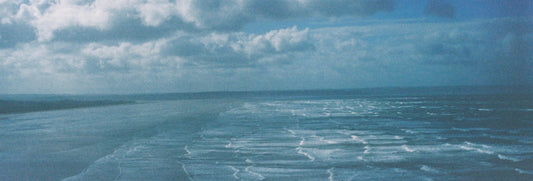
Drink 8 pints of Water Each Day - Or Perhaps Not?
Share
Find the original story here
I’ve played a lot of sport in my time, played squash at national level, and still play at club level 3 or 4 times each week.
It was a common sight around the courts to see everyone lugging around hydration bottles of water and sports drinks, worshipping the “8 pints a day” mantra, instilled by generations of health and fitness gurus.
I don’t know about you, but I always found it extremely difficult to keep drinking water when I wasn’t particularly thirsty, but felt obliged to fulfil my quota of this life-giving fluid. And no matter how many sports drinks crammed with “electrolytes” I drank at the gym, I still felt thirsty, so a number of years back, I decided to look into this “drink at least 8 pints of water daily for proper hydration” advice, and wasn’t surprised at the proper scientific outcome on this.
The recommendation to drink eight glasses of water a day lacks scientific evidence and is based on a misinterpretation of guidelines, which did not specify that the fluids had to come exclusively from water. In fact, fluids can come from a variety of sources, including coffee, tea, milk, soft drinks, and even fruits and vegetables.

Hydration is not merely about the water within our cells, it’s about maintaining the right balance of electrolytes and fluids.
Electrolytes, electrically charged minerals, play a crucial role in the movement of water in and out of cells, a truly hydrated cell has the correct balance of electrolytes and fluid, whereas dehydration results from an imbalance, not just a lack of water.
And also, drinking excessive amounts of water can lead to dilution of electrolytes, causing conditions like hyponatremia, which can be dangerous
Electrolytes like sodium, potassium, chlorides, calcium, and magnesium are essential for hydration, but diet and lifestyle can deplete these electrolytes, leading to dehydration. Refined sugar, alcohol, and certain diuretics can also contribute to this.
Caffeinated beverages like coffee, tea, and sodas can actually dehydrate the body, as can fruit juices and sports drinks with added sugar. These drinks can lead to a diuretic effect, causing the body to lose more water, so I can understand why I still felt thirsty, regardless of the amount of so-called energy drinks I consumed.
Many sports drinks and electrolyte powders contain added sugar, which can dehydrate the body by pulling water from cells, and this is particularly concerning for athletes who may consume these drinks excessively.
Listening to Your Body
A key principle for proper hydration is to drink when thirsty and avoid forcing excessive water intake. This approach is supported by research indicating that even athletes, such as long-distance runners, can encounter problems from drinking too much water when not thirsty.
The body’s thirst mechanism is a reliable indicator of when we need to hydrate. For those concerned about hydration levels, urine specific gravity tests can provide a rough estimate of dehydration or over-hydration
These urine specific gravity tests can measure the concentration of particles in urine, providing a rough estimate of electrolyte balance, and can help you determine if you are drinking too much or too little water.
Hydration is a complex process that involves the balance of electrolytes and fluids in the body. It’s essential to understand the role of diet, lifestyle, and the body’s natural thirst mechanism in achieving optimal hydration, so you don’t have to go around continually sipping from your water bottle all day, or forcing down large amounts of water just to stay healthy. Drink when you feel thirsty, and if you sweat a lot at the gym or elsewhere, make sure to take in sufficient electrolytes through proper diet.
And remember, regardless of some sports guru advice, drinking coffee and teas and sodas are not as effective as topping up with good natural aqua vitae, or the occasional nip of Scotch.
(Only joking about the Scotch, by the way)
References:
(25) Debunking 5 Myths about Water on World Water Day | LinkedIn



